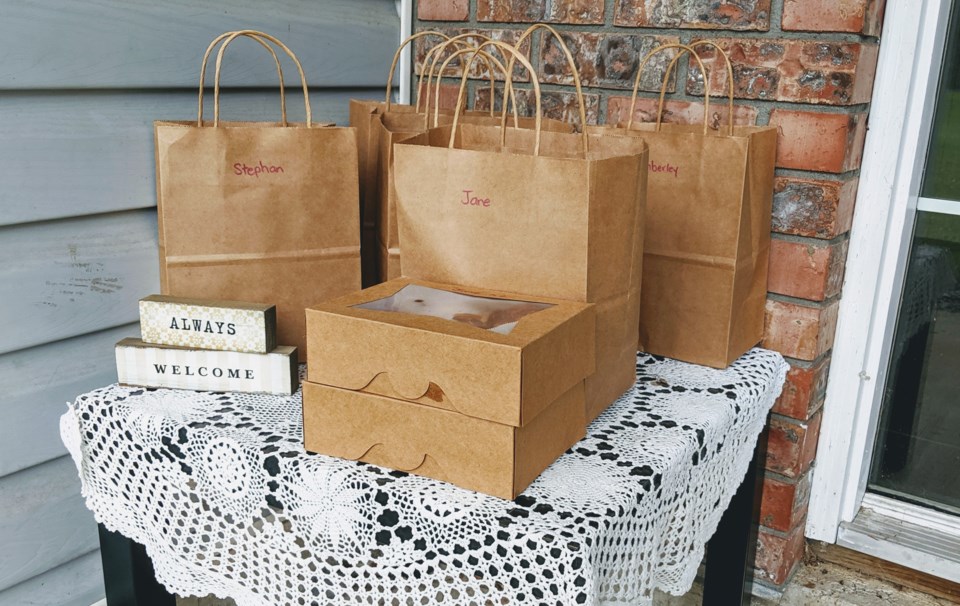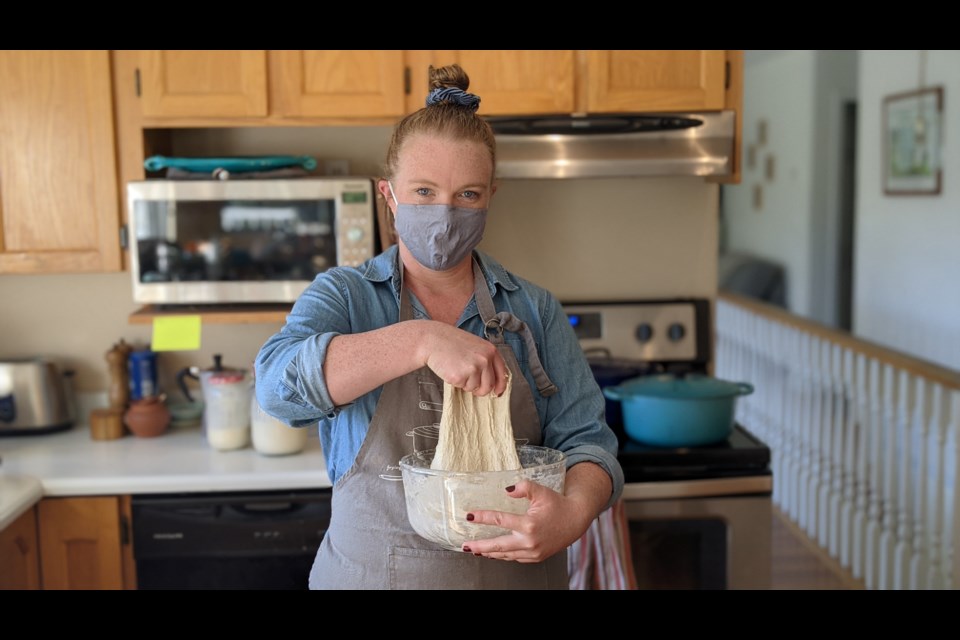Adel Cotichini has long fancied herself a home chef, but it wasn’t until the COVID-19 pandemic ramped up that she was finally afforded the time and motivation to start experimenting.
“I’ve always loved to cook. It’s been a passion of mine since I was a child,” she said. “But life has always got in the way.”
Cotichini wasn’t the only one.
As the supermarket shelves emptied and millions of British Columbians hunkered down to wait out what for some felt like endless self-isolation, many refocused their energy into the building blocks of homesteading.
Perhaps it’s no surprise the crisis pushed so many to seek refuge in the basics of a crusty loaf. Lonely, quarantined singles longing for a “companion” can seek comfort in the word’s doughy Latin origins: cum panis, or “someone you share bread with.”
But where many redirected their energy to one-off bread bakes and short-lived vegetable gardens, Cotichini’s experiments with sourdough — a growing necessity as yeast flew off supermarket shelves as fast as toilet paper — laid the groundwork for a home business that took off overnight.
Cotichini was about to take the pandemic sourdough craze to the next level.
SOMETHING PRIMORDIAL
If sourdough seems like a throwback to a time when bread didn’t come tucked in a plastic sleeve and twisted off with a bread clip — that’s because it is.
The Handbook on Sourdough Biotechnology offers a history of the tart loaf that “follows the entire arc of the development of human civilization,” with its first documented consumption dating back to the second millennium BCE when Egyptians discovered that if flour and water were left to spontaneously ferment, it would yield a soft bread to go along with some of the earliest beers.
From Egypt, it spread across the Middle East and Europe until, several thousands of years later, it remained an essential ingredient in the lives of those gripped by the Klondike Gold Rush of 1898.
Even today, the word “sourdough” distinguishes a long-term resident of the Yukon or Alaska as “someone who has seen the Yukon River freeze and thaw.”
For Cotichini, the ability of sourdough to survive the decades where brands like Wonder Bread and Dempster’s reigned supreme speaks to the staying power of simple ingredients over industrialized bread.
“Bread is one of the simplest foods we can make. And yet companies like Subway are, for whatever reason, thinking we need more ingredients,” she said, pointing to the recent ruling by an Irish Supreme Court which found Subway bread was not bread but cake due to its 10% sugar content.
“It’s just something we’ve gotten used to as a culture. I do think people are starting to realize that.”
‘IT’S ONLY SOURDOUGH’
Today, Cotichini’s pandemic-proof business produces a variety of sourdough loaves, from the rustic, squashed-ball shaped boules to simple pan loaves and her best-selling sourdough cinnamon buns.
In what she describes as both “therapeutic” and a “science experiment,” the simplicity of a sourdough recipe — which requires no more than flour, water, salt and patience — will get an occasional twist, incorporating seeds, olives or spices.
“I’m not a full-fledged bake everything,” she said. “It’s only sourdough.”

Her customer base has ramped up throughout the pandemic, spiking again over the last month. All orders are placed online, where bread buyers choose a time between Monday and Friday to pick up their loaves.
Most are local, from Anmore or nearby Port Moody, Coquitlam or Port Coquitlam; all of them come right up to her door.
“It’s a really lovely way to meet the people in the community,” said Cotichini. “I place the bread outside my door on a little table. I have people coming in my driveway all the time. It’s a properly socially-distanced pick-up site.”
Business has picked up so much that she’s had to invest in a raft of new proofing baskets, loaf pans and even a second fridge to keep the dough overnight.
Balancing her newfound love of bread can be tricky: Cotichini is both a mother of four and has continued to work remotely as an executive assistant at a company which helps to create gender-diverse workplaces for Fortune 500 companies.
At the same time, Cotichini’s husband found his own way to blend work and soften the new challenges of home life: this week, the couple is soft-launching the Chore app, a gamified way to put your kids to work.
And within a year, pandemic or not, Cotichini plans to expand the sourdough operation into a larger commercial space.
“We don’t like to sit idly by and wait,” she said.



